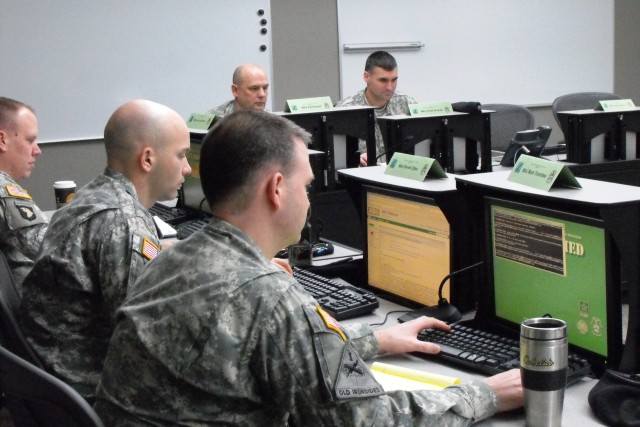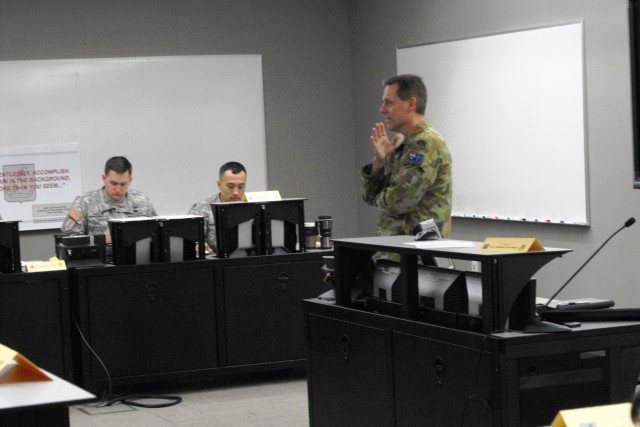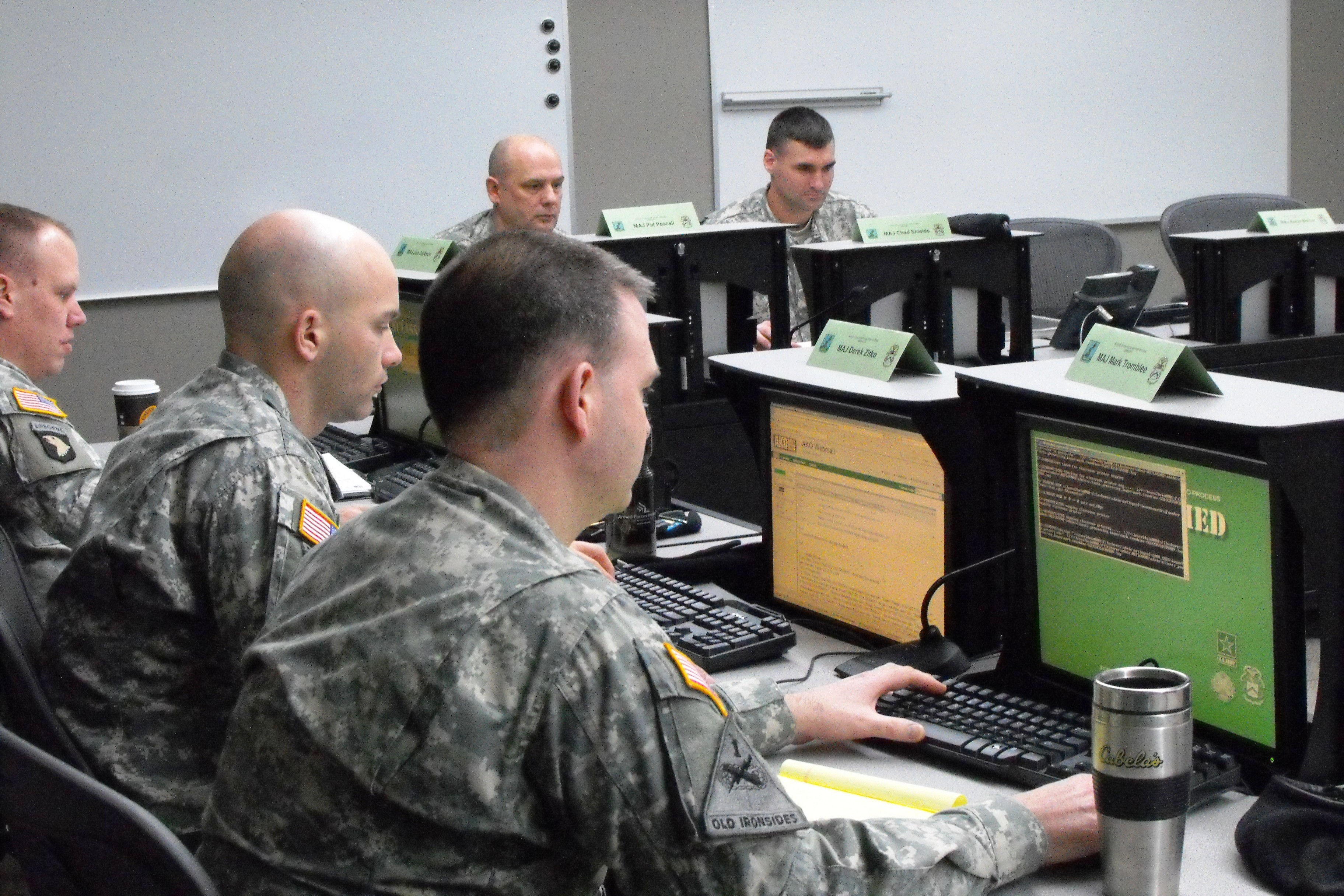FORT LEAVENWORTH, Kan. - Leaders at the Command and General Staff College formally announced the next step in the expansion of the Advanced Military Studies Program (AMSP) at the School of Advanced Military Studies (SAMS) here with the start of two seminars on Jan. 21.
Twenty-nine Army, sister service, international and interagency students began orientation for the 11-month intensive leader's course. SAMS has doubled the capacity for its winter-start class after one seminar completed a successful pilot program last year.
SAMS programs include AMSP and the Senior Service College Advanced Operational Art Studies Fellowship, both focused on developing operational artists who are skilled operators, expert planners and officers who can successfully lead combat formations.
Col. Stefan Banach, SAMS director, sees the expansion as a continued commitment to keeping the program relevant. "This endeavor accomplishes several things," he said. "The collective goal is to meet the demands of the Army and joint forces which have been at war for over seven years. Accordingly, the program is expanding from six to nine seminars to support a broader Army leader development initiative. These efforts will provide the Army with more SAMS graduates and the dual-start strategy better conforms to the Army's force generation process and the greater needs of the force."
The winter class is just one part of an overall expansion to increase the number of graduates from SAMS programs. In addition to adding a seminar to the winter schedule, an additional seminar of 16 students will begin in July 2009. The final design calls for an increase from 82 students in six seminars to 144 graduates in nine seminars by May 2010, projecting a 57 percent increase in SAMS graduates.
The increased number of SAMS graduates provides the Army with an increased capability and added flexibility to assign these graduates to mission essential requirements. This includes the option to not only fill the positions historically designed for SAMS graduates in Corps and Divisions, but also for new billets in Brigade Combat Teams and the Ranger Regiment. Additional graduates may also be available to meet emerging requirements in combatant, theater and Special Forces commands as well as interagency assignments.
Australian Army Col. Damian Cantwell, leader for one of the two winter start seminars, understands the value of these changes. "The expansion of the SAMS program is further evidence of the willingness of the U.S. Army and its allies and partners to adapt quickly to the complex challenges we expect to continue to confront our future commanders and staff. In an era where battlefields are more often defined by social structures than terrain, and ideas function as weapons, an enhanced capacity for commanders to think critically and innovatively is the key to success," he said.
The increased student load has also enhanced the staffing and facilities at SAMS. Thirteen new Ph.D. instructors are being added to the faculty which will allow for a broadening of the curriculum beyond the standard academic areas of military history, theory and doctrine. In addition, two classrooms in Fort Leavenworth's Eisenhower Hall have been upgraded.
Banach notes the changes are coming at just the right time. "As we approach the 25th Anniversary of the SAMS program in May, it is important that we maintain our standards as a preeminent military educational institution and that we constantly seek improvement," he said.
"By enhancing the curriculum, upgrading the technology in the classrooms and providing more opportunities for officers to receive this graduate level education, we've set a new standard for excellence. We feel we are preparing our officers to meet the broad challenges of the 21st Century and ensuring the intellectual health of our Army is sustained and enhanced."




Social Sharing